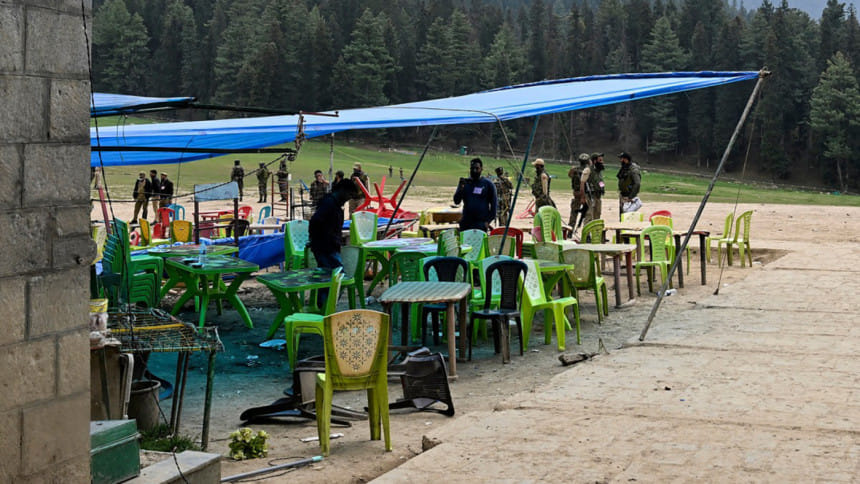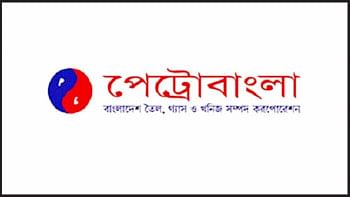Pahalgam terror attack: Crackdown in J&K triggers concerns

Concerns in Indian-run Kashmir grew yesterday over sweeping detentions in the hunt for the gunmen who carried out a deadly attack last week that New Delhi blames on arch-rival Pakistan.
New Delhi has accused Pakistan of supporting "cross-border terrorism" after gunmen killed 26 people on April 22, the worst attack on civilians in contested Kashmir for a quarter of a century.
Islamabad has denied any role, calling attempts to link Pakistan to the attack "frivolous" and vowing to respond to Indian action.
Relations between the nuclear-armed rivals have plunged to their lowest level in years, sparking worries by analysts of possible military action.
The attack also sparked a huge manhunt for the gunmen in Kashmir, with Indian security forces blowing up nine homes of suspected rebels, as well as detaining nearly 2,000 people for questioning, a senior police official told AFP.
"Punish the guilty, show them no mercy, but don't let innocent people become collateral damage," Jammu and Kashmir's Chief Minister Omar Abdullah said in a statement.
Aga Ruhullah, a federal lawmaker from Kashmir, said: "Kashmir and Kashmiris are being given a collective punishment."
Meanwhile, the legislative assembly of Jammu and Kashmir, India's only Muslim-majority region, yesterday unanimously passed a resolution denouncing the terrorist attack and resolved to fight resolutely to defeat designs to disturb communal harmony and hinder progress.
At the beginning of the session, House members observed a two-minute silence to pay homage to the victims.
Wrapping up the discussion on the resolution, Omar Abdullah, who also holds the tourism portfolio, admitted that he failed in his responsibility to ensure a safe return for tourists.
The chief minister, however, noted that even in the face of this inhuman and dastardly attack, a new ray of hope has emerged from Kashmir.
"For the first time in many years, I witnessed protests that were truly unified. No political party or leader orchestrated them, and no organised banners or candlelight marches were planned. The outrage and grief were spontaneous, coming straight from the hearts of the people," he said.
India and Pakistani forces have exchanged fire across the de facto border in the rugged and remote high-altitude Himalayan outposts.
India's army yesterday said its troops and Pakistani forces had fired at each other for a fourth night in a row.
There were no reported casualties. Islamabad did not immediately confirm the gunfire from Pakistan.
Kashmir has been divided between India and Pakistan since their independence from British rule in 1947. Both claim the territory in full.
Indian police have issued wanted posters for three men -- two Pakistanis and an Indian -- who they say are members of the Pakistan-based Lashkar-e-Taiba group, a UN-designated terrorist organisation.
New Delhi has downgraded diplomatic ties since the attack, withdrawn visas for Pakistanis, suspended a water-sharing treaty, and announced the closure of the main land border crossing with Pakistan.
In response, Islamabad ordered the expulsion of Indian diplomats and military advisers, cancelled visas for Indian nationals and barred its airspace to Indian airplanes.
China, which shares a border with both India and Pakistan, urged both sides on Monday to "exercise restraint, meet each other halfway" and "properly handle relevant differences through dialogue", foreign ministry spokesman Guo Jiakun said.
Iran has already offered to mediate, and Saudi Arabia has said Riyadh was trying to "prevent an escalation".
The United Nations has urged the arch-rivals to show "maximum restraint" so that issues can be "resolved peacefully through meaningful mutual engagement".
India yesterday also banned 16 Pakistani YouTube channels, including some leading channels like Dawn News, Samaa TV, Ary News, and Geo News, for disseminating "provocative and communally sensitive" content and false and misleading narratives and misinformation" against India, its army and security agencies after last week's terror attack.
The sources said that after the BBC India termed the terrorists as "militants" in one of its reports, the Indian government approached the channel head, Jackie Martin, via the Ministry of External Affairs, and conveyed their strong sentiments to him.
Similar concerns have also been expressed to American news agencies Associated Press and Reuters, sources told The Indian Express.

 For all latest news, follow The Daily Star's Google News channel.
For all latest news, follow The Daily Star's Google News channel. 



Comments